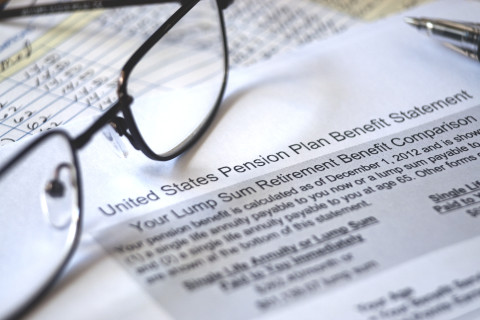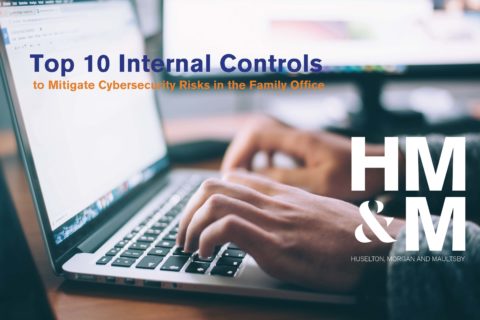Attracting and retaining millennials, the largest segment of today’s workforce, is a priority for companies in one of the tightest labor markets in history. One way to do this is to re-evaluate the company’s benefits—particularly the retirement plan—so that they better align with millennials’ needs and priorities.
Like all generations, millennials—defined as those born between 1981 and 1996, according to the Pew Research Center—may have different career and financial goals than previous generations. While some of these generational differences may be exaggerated, it’s still important for employers to understand the priorities of their younger workers and offer benefits that these employees will value and appreciate.
Facts and Myths About Millennial Workers
Millennials have a reputation for being frequent job-hoppers, but it’s important to understand the data that give rise to this assumption. Gallup data show that 21% of millennials reported changing jobs in the last year—more than three times higher than older generations. Gallup also found that only 29% of millennials report being emotionally and behaviorally connected to their jobs, compared to 32% for Generation X and 33% for baby boomers.
These differences, however, may have more to do with the stage workers are at in their careers than generation gaps in attitudes about work. The Pew Research Center found that millennials aren’t changing jobs at a faster rate than Generation X did at similar ages. The U.S. Bureau of Labor Statistics found similar results when comparing millennials with baby boomers, according to a 2018 report by the National Institute on Retirement Security (NIRS).
Regardless of the reasons for millennials’ job-changing patterns, there is no denying that it has an impact on millennials’ relatively low participation rates in retirement plans. The NIRS study showed that in 2014, the most recent year for which data is available, 66 percent of millennials worked at a company that provided a retirement plan, roughly equal to the percentages for Gen X and baby boomers. But only 34 percent of millennials participated in the retirement plan, compared with about 50 percent for older generations.
NIRS concludes that this discrepancy is mostly attributable to the fact that millennials are less likely to be eligible to participate in their company’s retirement plan. There are two main causes of this: 1) millennials are nearly twice as likely to be employed as part-time workers than older generations and 2) more than half of millennials have tenures of less than one year at their current company.
Tailoring Your 401(k) Plan
Given these factors, employers who want to increase retirement plan participation rates among their millennial employees may want to examine the eligibility guidelines for their retirement plans. Other ways that employers can tailor a retirement plan to better align with the needs and priorities of millennial workers include:
- Mobile access to plan information: Millennials expect to receive information via interactive digital formats, so plan sponsors should incorporate this into how they provide information about—and access to—the retirement plan. Formats that plan sponsors may want to incorporate into their communications strategies include videos or infographics (as opposed to static, text-heavy PDFs), apps that make selecting investment options simple and online calculators that facilitate financial planning.
- Socially responsible investment options: One of the biggest areas of growth in the asset management industry is investments that focus on more than just financial returns, often referred to as socially responsible investing or Environmental, Social and Governance (ESG) investing. Millennials are driving much of this growth, so they may want to see these types of strategies as options in their retirement plans. Plan sponsors may consider adding these strategies to their 401(k) lineups or at least provide ESG ratings for the plan’s current investment options.
- Portability of benefits: When they change jobs, workers often cash out of their 401(k) plans. Making it easier for new employees to roll 401(k) assets from their previous employer into the new plan can help employees keep their assets growing and may encourage further savings.
- Student loan assistance: A survey by Bankrate.com shows that 29 percent of millennials are delaying saving for retirement because of student debt. Plans sponsors can now help employees address their debt problems through the company’s retirement plan. The Internal Revenue Service recently issued a private letter ruling allowing one company to make matching contributions to participants’ 401(k) accounts when they pay down a certain percentage of student loan debt.
Insight: Understand Millennial Drivers Before Making Changes
Organizations that are trying to engage their millennial workforce may want to evaluate their employee benefit offering, including their retirement benefit plan programs. Benefit plans that address millennial concerns, interests and communication styles may be an effective way for companies to boost participation and engagement—and, in turn, improve retention.
Before overhauling the plan design, employers should do their homework to understand millennials’ priorities for retirement and other benefits and the reasons why millennials do or don’t participate in retirement plans. Once these drivers are understood, organizations can design plans aimed at achieving company goals while addressing the specific needs and interests of its workforce.
Contact Us
This article originally appeared on BDO USA, LLP’s “BDO Knows Alert: EBP Audits – July 2019”
By: Beth Garner and Joanne Szupka
Copyright © 2018 BDO USA, LLP.
All rights reserved. www.bdo.com
Latest News
On June 9, the IRS released Announcement 2022-13, which modifies Notice 2022-3, by revising the optional standard mileage ...
At the tail end of 2021, the Internal Revenue Service (IRS) released new Schedules K-2 and K-3 effective ...
This information is current as of Sunday, November 21, 2021. On Friday, November 19, 2021, after the Congressional ...
HM&M Updates
DALLAS, Dec. 11, 2024 – Springline Advisory, a trailblazing financial and business advisory firm, is proud to announce its partnership ...
Last month, Senior Manager, Pearl Balsara was invited to speak at the 2023 FPA DFW Annual Conference in ...
We are pleased to announce the winners of the 2022 HM&M Excellence Awards. Ronna Beemer, Keith Phillips, and ...









